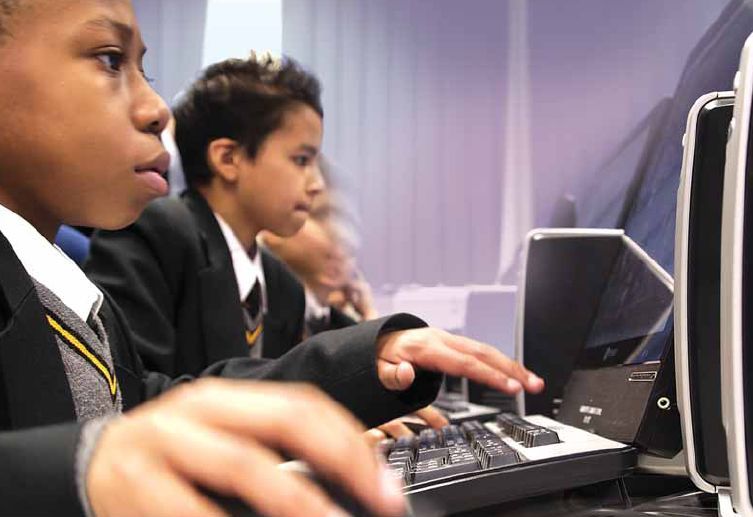Call for better parental controls on mobile phones
Researcher has called for the mobile industry to beef up internet controls on children's mobiles, citing a need for 'less talk and more action'.

A leading Government adviser has called for mobile phones to be fitted with improved parental controls to help protect children from potentially harmful online content.
Professor Tanya Byron warned that industry needed to accelerate its efforts to keep up with the advance of technology, and called for "less talk... more action" to keep youngsters protected.
Byron warned that children could now access adult sites with "extraordinary ease" particularly through mobile phones, and said it was vital for industry to agree a code of conduct that would ensure there were "safe places" online for children.
The TV child psychologist's recommendations came in a two-year progress report on the UK Council for Child Internet Safety (UKCCIS), a body she led the way in setting up in September 2008.
Launching the report alongside Prime Minister Gordon Brown in front of 10 Downing Street, Professor Byron praised the work done by the UKCCIS saying it had made the UK a leader in online child safety but warned that efforts needed to gather pace, focusing mainly on internet safety on mobile phones.
"We have a huge number of under-aged children on social networking sites; we know that children who have Wi-Fi-enabled mobile phones can access the internet; we know that there are location-based devices; we know that there is an extraordinary ease of access to pornography for children and young people," Byron said.
"Speeding up, we need to see a code of practice for companies and providers, we need to really think about parental controls for mobile phones that can access the internet."
Get the ITPro daily newsletter
Sign up today and you will receive a free copy of our Future Focus 2025 report - the leading guidance on AI, cybersecurity and other IT challenges as per 700+ senior executives
Byron wants to see the UKCCIS working with phone manufacturers to rethink the parental control system on mobile phones.
At present, controls can either be set up when buying the phone or by contacting a network provider's customer services department at a later date.
However, she said, many parents were simply unaware such controls existed, and often children were easily able to bypass or change them.
Instead, Byron suggests parental controls should be activated on the handset itself using a password. She is also calling for minimum standards for parental controls on games consoles.
"Let's have standards across the board, codes of conduct so that industry can say to parents and families this is what we are doing for your children on the sites and we can measure their success in doing that," she said.
With news emerging this week that a quarter of eight to 12-year-old internet users have profiles on social networking sites despite the sites in question having a minimum age limit of 13, Byron's report also called on the UKCCIS to become involved in these issues.
Speaking to the BBC, she expressed alarm that so many children were using social networks, and that their parents seemed none the wiser.
"How many parents know their children are on social networks? I think definitely it is very much about responsibility that starts in the home how we parent our children; how we talk to our children about being safe whether online or offline," she said.
Children's Secretary Ed Balls welcomed Professor Byron's remarks, hailing the UK as a world leader in tackling child internet safety but warning that hard work lay ahead if it was to remain that way.
"More young people are now accessing the internet on their mobile phones and games consoles, and as parents we need to manage the way our children are using these technologies," Balls said.
-
 Trade body urges UK government to speed up National Semiconductor Strategy
Trade body urges UK government to speed up National Semiconductor StrategyNews Trade body techUK has urged the UK government to accelerate the implementation of the National Semiconductor Strategy.
By Emma Woollacott
-
 US lawmakers call for restrictions on software exports to Chinese chip companies
US lawmakers call for restrictions on software exports to Chinese chip companiesNews US government needs broader, systemic restrictions to avoid Chinese military innovation, says letter
By Danny Bradbury
-
 HP airs concerns over Government SMB IT deals
HP airs concerns over Government SMB IT dealsNews Tech giant has reportedly written to the Treasury to outline its concerns about the Government's ongoing SMB supplier push
By Caroline Donnelly
-
 Government Compliancy in the IT Sector
Government Compliancy in the IT SectorIn-depth Compliance is paramount to government IT installations; Max Cooter explains why.
By ITPro
-
 Taxpayers' Alliance hits out at schools' "wasted" tablet investments
Taxpayers' Alliance hits out at schools' "wasted" tablet investmentsNews Campaign group claims schools are failing to make best use of technology.
By Caroline Donnelly
-
 BlackBerry 7 OS certified to carry 'Restricted' UK government information
BlackBerry 7 OS certified to carry 'Restricted' UK government informationNews Canadian manufacturer retains foothold in the enterprise market.
By Khidr Suleman
-
 NAO: Police mobile rollout failing to deliver
NAO: Police mobile rollout failing to deliverNews The police are not getting enough benefits from the Mobile Information Programme, the NAO says.
By Tom Brewster
-
 GCHQ says BlackBerry is safest
GCHQ says BlackBerry is safestNews GCHQ division CESG says BlackBerrys are the safest phones for sensitive Government data, as it offers smartphone security guidance.
By Tom Brewster

